Freedom of movement is not a right; it is a real living force. Despite all the obstacles that states put in people’s way — all the barriers of barbed wire, money, laws, ID cards, surveillance and so on — millions cross borders every day. For every migrant stopped or deported, many more get through and stay, whether legally or clandestinely. Don’t overestimate the strength of the state and its borders. Don’t underestimate the strength of everyday resistance – A No Border Manifesto
Restricting migration is a priority for the Dutch government and the EU. The walls of Fortress Europe are rising taller, rescue-missions by aid organisations are counteracted, and refugees are locked up and deported. Thousands of people die in the Mediterranean Sea or in the desert, or they are stuck in horrible conditions. Politicians instigate hate against refugees, while weapons-companies are in the mean time making big money on militarizing borders. Rich Western countries keep fueling the reasons why people flee through unequal trade, weapon exports, causing climate change, and military interventions.
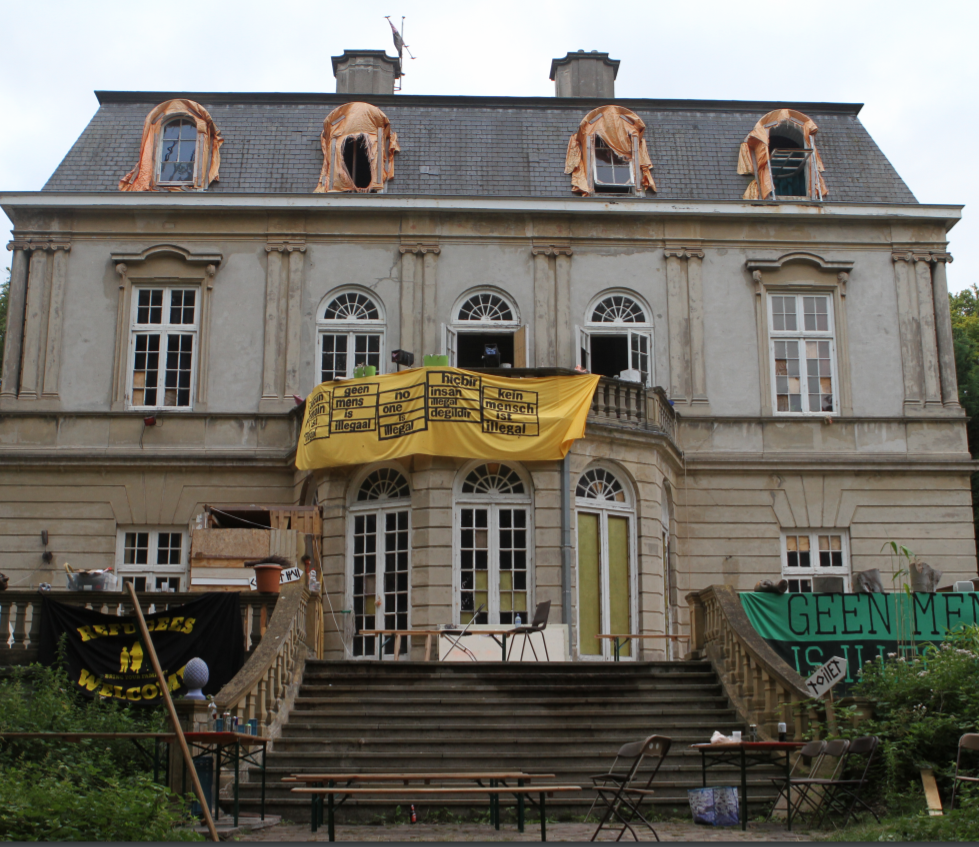
To get into action and oppose these tendencies last year we helped organizing the No Border Camp, a three-day event around the No Border struggle that took place at House Ivicke in Wassenaar, at the beginning of August. The purposes of the camp were multiples: exchanging knowledge and learning from each others through workshops and talks, enforcing connections among people active or interested in the struggle and doing protest actions, all on a extra-parliamentary and anti-authoritarian basis.
Some time has passed, and we don’t really have notes, but we’ll try with this small report to give back some impressions from the camp, but also about what we experienced in helping with the organization, mainly to save them from being forgotten.
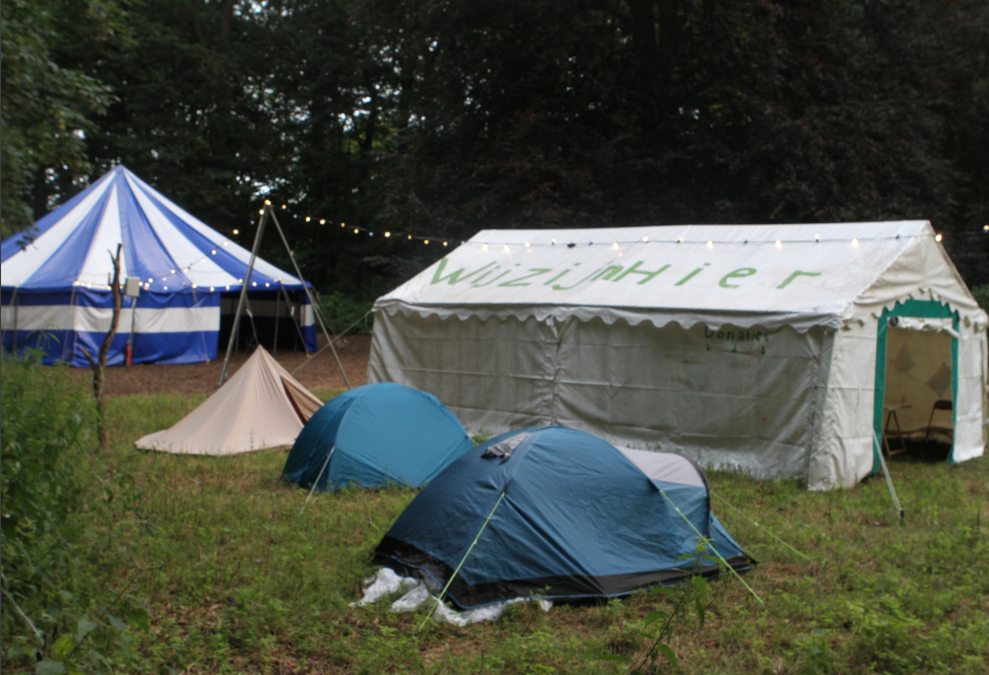
Let’s maybe start with the Camp then. It is always amazing to see what a bunch of people can set up autonomously, and how these camps work out through self-organization and participation of the people attending the event. The First two days where structured as following: first a delicious breakfast prepared by the action kitchen Le Sabot, then the general assembly, where the various work groups that helped with the organization gave some information and small updates about their work. Right after that, the day program started with the first two slots of the program, followed by lunch and then three more talks/workshops slots in the afternoon. Then, after dinner, a cultural program took place with concerts ( one evening Your local Pirates, the next one The Kush Band) and the theater performance Our Footsteps. The talks and workshops were well attended and served as a mean to exchange knowledges, but also to create some space for people to reflect together on how to support each other in specific struggles. Next to the program, every day some actions were done, for examples a noise demo at the foreign detention center in Rotterdam, or a flyer-action at Otto Workforce to denounce the bad working conditions of migrant workers. It was very nice as well to see that next to the organized program some workshops and actions came up spontaneously. On Sunday, the last day of the camp, most of the people took part in the bigger action, targeting the NATO/TNO building.
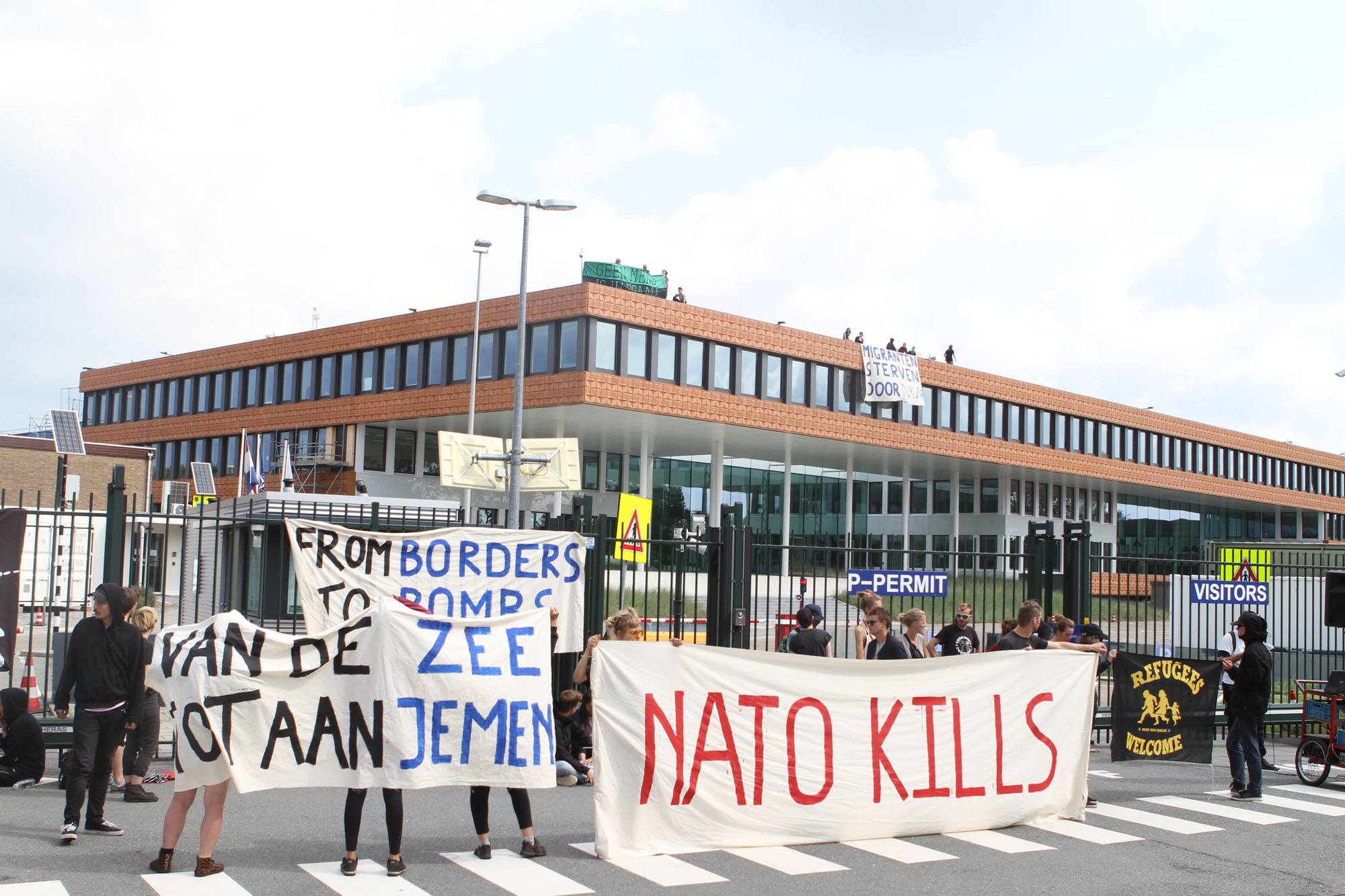
For most of us, this experience was the first time being actively involved in the organization of such a big event, and we generally had a good impression of how things turned out. With the talks and workshop program, although far from being exhaustive, we tried to cover a variety of related struggles and to point out how the oppressions perpetuated in the capitalist society we live in are connected. We also received many proposals for talks and workshops from people and collectives active abroad that decided to join us for the camp; this really showed us how knowledge exchange and international connections are needed and valued by people active in the struggle.
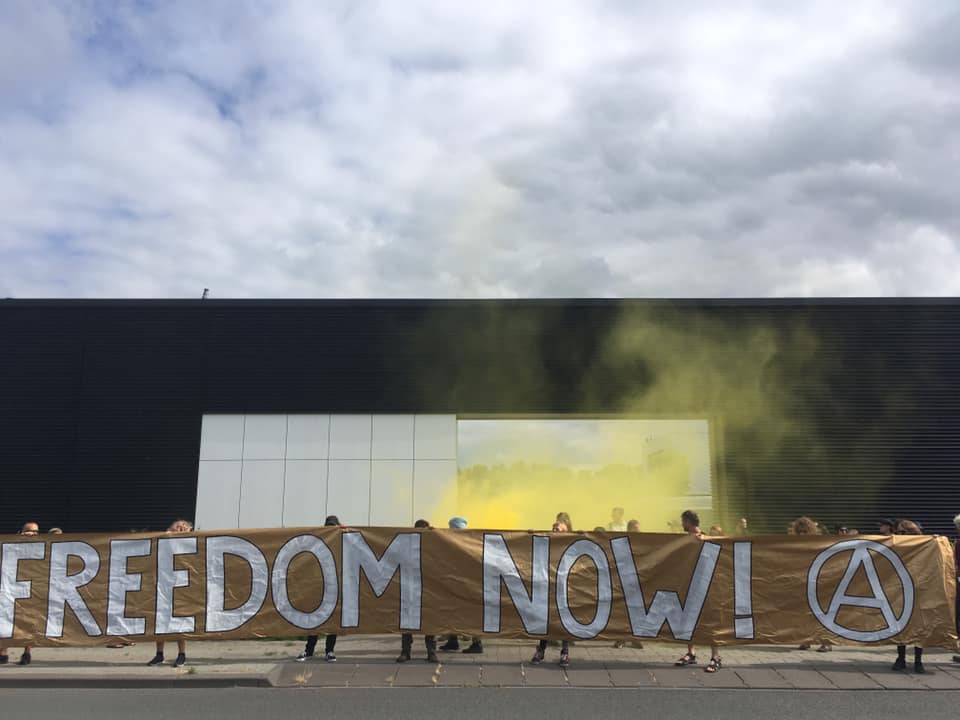
We focused mainly on three thematic fields: migration and migration policies, intersection to other struggles and practical workshops.
The first thematic block consisted of a nice mixture of speeches about borders dynamics (such as externalization of the European Union borders or criminalization of sea rescue missions) about the struggle of people living on their own skin the effects of those policies (with talks about the situation in Turkey and the Evros route, the situation of women and atheists in Iran, the forced migration in Venezuela and the struggles of living as an undocumented person in Amsterdam) and of people and collectives organizing to oppose border policies (like the experiences of people showing solidarity to migrants detained in detention centers and people cooking at the border to support people trying to cross).
In the second block, we focused on the intersections between the migration struggle and other struggles with session about e.g. the connection between migration and capitalist exploitation, climate change and weapons export by western countries.
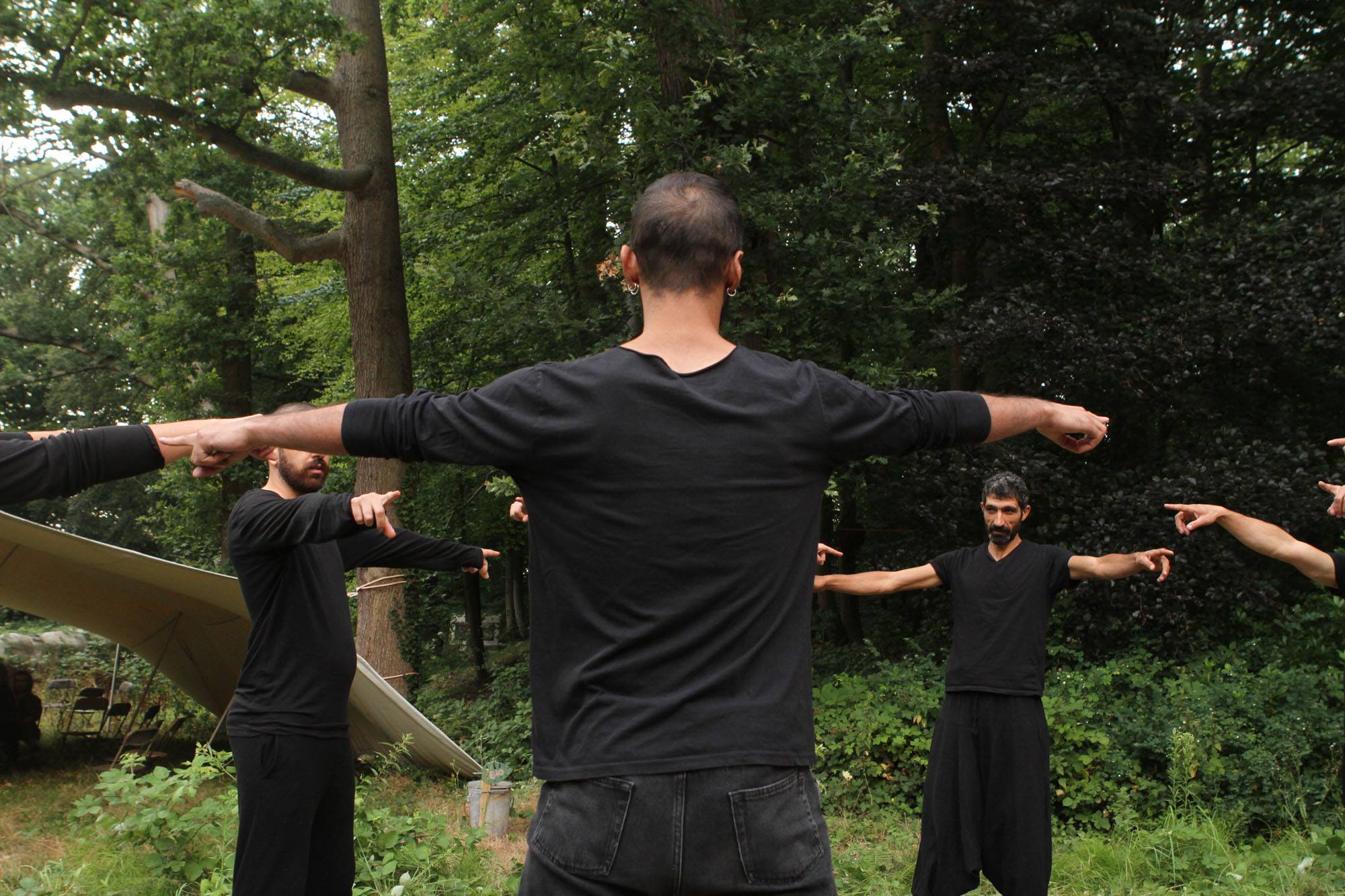
The last block, contained a variety of useful workshops to acquire practical skills ranging from how to improve group dynamics in a demonstration and how to squat, to how to set up a migrant solidarity network or how to do ‘Naming and Shaming’ to companies from border control systems.
One of the biggest node we had to confront ourselves within this experience, and that we think is important to talk about, is definitely the one of the relation between the ‘dutch radical scene’ and the migrant communities. The more and more we found ourselves reflecting on how to best involve migrant communities in the program, the more the disconnection between the latter and the ‘radical scene’ became evident. To try to start untangling this node, we decided to host as part of the program a reflection session on the relation between No border activism in the dutch radical left and migrant communities. Unfortunately, the reflection session did not turn out as expected and the discussion could not really start, leaving this topic unspoken. Nevertheless, we see this issue as a central one and we‘ll keep thinking about it in our further steps. In the meantime, here the text we prepared as a starting point for the reflection session, that we still believe is worth reading.
Reflection Session on No Border Activism – Introduction Text
